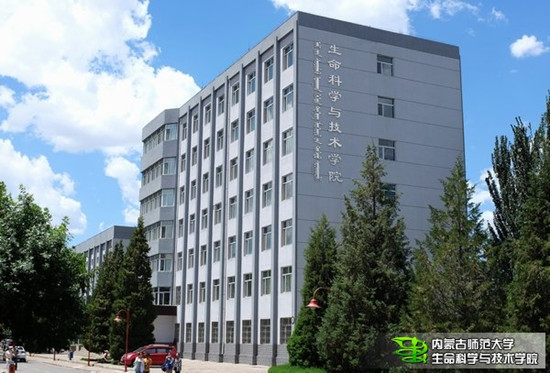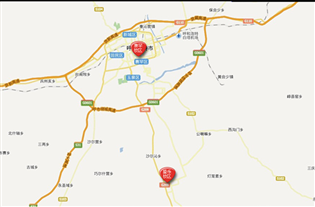School of Life Sciences and Technology

The School of Life Sciences and Technology can be traced back to the Biology Group of Inner Mongolia Normal College launched in 1952, which was restructured into the Division of Biology and Chemistry in 1954. The Division of Biology was separated in 1956, renamed the Department of Biology in 1958, and began to enroll undergraduate students that same year. The department began to offer courses taught in Mongolian in 1962, and launched master's programs in 1985. In 2000, the biology department of the former Inner Mongolia Education College was merged into the Department of Biology, based on which the School of Life Sciences and Technology was founded in 2003.
The school has three departments. The Department of Biological Sciences cultivates budding teachers and offers courses taught in Mongolian and Mandarin. The Department of Biotechnology and the Department of Ecology offer Mandarin courses only. Every year, about 30 percent of the undergraduates continue studies to earn the master's degree, the highest rate among all schools of the university.
The school has six laboratories: plant biology, zoology, basic biology, biotechnology, ecology, and pedagogy. It has built more than ten field study bases in the autonomous region's nature reserves, schools and local enterprises. It also houses the Biological Specimen Depository of IMNU. The depository, a comprehensive biological specimen museum devoted to collecting and displaying fauna of the Mongolian Plateau and its surrounding areas, has the highest number and greatest range of specimens in Inner Mongolia.
The school's Biological Sciences and Biotechnology programs are among the key programs of Inner Mongolia, while the Center for Experiment Management is one of the autonomous region's demonstration centers for experimental education. It offers seven high-quality courses at the provincial level and 21 at the university level. In recent years, the school's achievements in undergraduate education included a first-class award granted by the university, a second-class award in ethnic education given by the autonomous region, and a first-class award from the 13th National Multimedia Courseware Competition.
Teachers at the school have participated in more than 40 programs at the national level and 70 at the provincial level, winning a variety of awards given by the country, the autonomous region, and the university. Other honors include the autonomous region's Special Contribution Award in Science and Technology, a second-class Science and Technology Award for Natural Sciences, and a second-class Science and Technology Progress Award.
The school enrolls 40 to 50 graduate students annually, and has cultivated more than 400 graduate students since 1985. It offers academic master's programs in Biology and Ecology, and professional master's programs in Biology Education. Several of the school's supervisors were honored the Outstanding Supervisors of the nation, the autonomous region, and the university.



 Print
Print Mail
Mail

